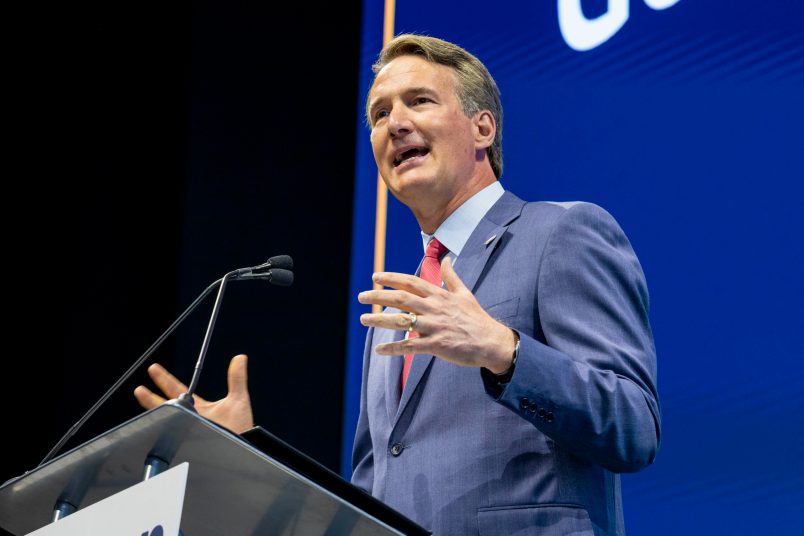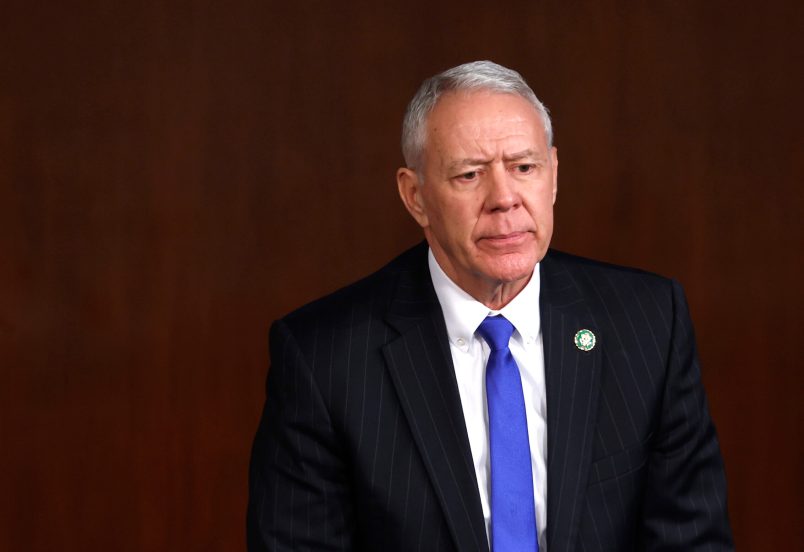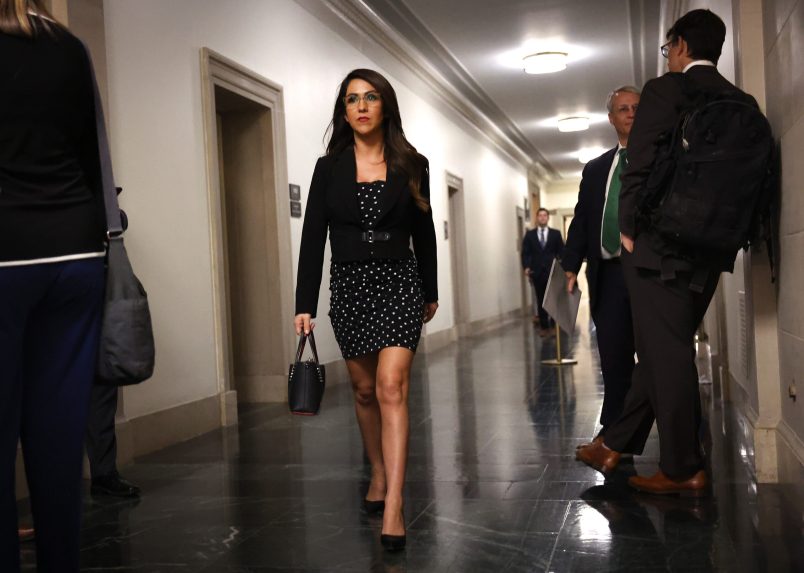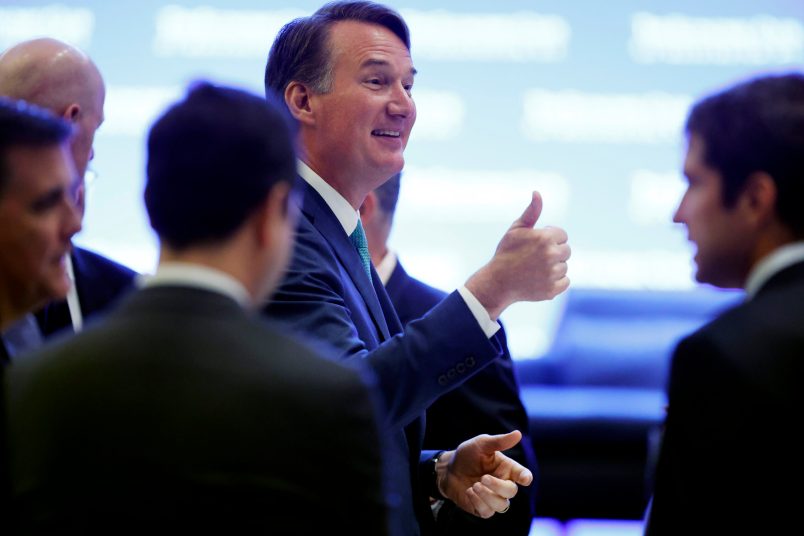In a private meeting between Senate Republicans and the leader of a super PAC closely linked to Senate Minority Leader Mitch McConnell (R-KY) last week, senators were fed the results of recent polling that found voters attitudes about “pro-life” language has dramatically shifted since the Supreme Court’s ruling on Dobbs.
Senators who spoke with NBC News told the outlet that the polling data discussed in the meeting revealed that voters now associate being “pro-life” with being against abortions at all levels with no exceptions — as if it were news to them. Per NBC News:
“What intrigued me the most about the results was that ‘pro-choice’ and ‘pro-life’ means something different now, that people see being pro-life as being against all abortions … at all levels,” Sen. Kevin Cramer, R-N.D., said in an interview Thursday.
Sen. Josh Hawley, R-Mo., said the polling made it clear to him that more specificity is needed in talking about abortion.
“Many voters think [‘pro-life’] means you’re for no exceptions in favor of abortion ever, ever, and ‘pro-choice’ now can mean any number of things. So the conversation was mostly oriented around how voters think of those labels, that they’ve shifted. So if you’re going to talk about the issue, you need to be specific,” Hawley said Thursday.
“Pro-life” activists have been clear for decades about their rigid beliefs that life begins at conception with no exceptions. Many Republicans, especially those courting the evangelical vote, have long embraced the idea of fetal personhood as a policy platform, meaning that abortion at any stage in the pregnancy, and for any reason, is murder. Some have even gone so far as to advocate that embryos and fetuses be recognized as people and endowed with the same rights.
But the supposed re-education happening among Republican members of Congress is reflective of a broader flailing as the party realizes post-Dobbs that bans passed outlawing or restricting the procedure are not only deeply unpopular among voters, but also a huge factor in energizing turnout for Democrats. So, as Hawley alluded, Republicans are trying to plant their flags in specifics that illustrate they’re still opposed to abortion, but not in all cases. One example of this phenomenon came in the form of a podcast discussion between Michigan Republican Tudor Dixon and Donald Trump, in which the former president and top GOP 2024 candidate made it clear that Republicans must embrace exceptions for rape or incest if they want to win this cycle.
As my colleague Kate Riga pointed out after the first Republican debate last month, even GOPers who have carved out entire political careers in the trenches of the Christian Right, like former Vice President Mike Pence, are planting their flags in unfamiliar territory this cycle. Pence, a supporter of fetal personhood, announced during the debate that he stands behind a 15-week national ban, a previously unheard of embrace of such a benchmark for the militantly “pro-life” former Veep and deeply conservative governor of Indiana.
While Republicans have tried and failed repeatedly since Dobbs to find an anti-abortion message that allows them to avoid specifics, it appears the 15-week threshold may be catching on as a worthy gamble. In Virginia, Republican Gov. Glenn Youngkin has made the upcoming state legislature elections a referendum, at least in part, on abortion restrictions and whether a 15-week ban could prove to be the sweet spot ultimately embraced by the national party whose attention the governor with presidential ambitions is courting. Per the New York Times:
On abortion, Mr. Youngkin, who is not on the ballot, wants to ban the procedure after 15 weeks with exceptions for rape, incest and the life of the mother. If Republicans take majorities in both legislative chambers — and both are in play — the takeaway is likely to be that the party cracked the code with suburban swing voters on abortion by offering a more middle-of-the-road position than the near total bans passed in deep-red states.
“This election is going to matter, it’s going to set things up for 2024,” said Don Scott, the Democratic leader of the Virginia House of Delegates, who is one his party’s lead strategists. “If Virginia goes the wrong way, the narrative is going to be the Republicans have figured out the right election combination to overcome their extremism on abortion.”
And it could be a road map for Republicans in other states who are looking to defuse the issue after election losses following the Supreme Court’s Dobbs decision.
The Best Of TPM Today
Here’s what you should read this evening:
Virginia’s Public Universities Have A Long History Of Displacing Black Residents
Colorado SoS Slams Trump For Calling Efforts To Use Disqualification Clause ‘Election Interference’
Georgia Election Workers Targeted By Giuliani Seek More Than $100,000 In Attorney Fees
Aileen Cannon Is Taking Her Own Sweet Time In The Mar-a-Lago Case
In case you missed it:
Judge Denies Meadows Bid To Remove Georgia Case To Federal Court
Special Grand Jury Recommended Charges Against Sens. Graham, Perdue, Loeffler
Yesterday’s Most Read Story
Alito Pontificates Further On The Righteousness Of His WSJ Interview — Josh Kovensky
What We Are Reading
“Dark” right-wing network recruits MAGA “army” to replace 50K federal workers Trump plans to purge — Salon
A history of happiness explains why capitalism makes us feel empty inside — Vox
TikTok is blocking searches for WGA amid the ongoing writers strike — Media Matters






